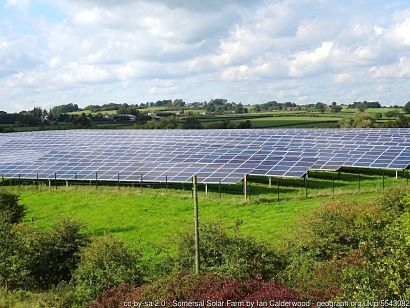
The report calls for an integrated data and digital strategy throughout the sector and highlights the fact that the move towards a modern, digitalised energy system is being hindered by often poor quality, inaccurate, or missing data, while valuable data is often restricted or hard to find.
The Taskforce run by Energy Systems Catapult and chaired by Laura Sandys, has delivered a strategy centred around two key principles – filling in the data gaps through requiring new and better-quality data, and maximising its value by embedding the presumption that data is open. These two principles will start to unlock the opportunities of a modern, decarbonised and decentralised Energy System for the benefit of consumers.
The Energy Data Taskforce identified that a staged approach needed to be taken to achieve a Modern, Digitalised Energy System in order to fill the data gaps and which maximises data value:
Data Visibility: Understanding the data that exists, the data that is missing, which datasets are important, and making it easier to access and understand data.
Infrastructure and Asset Visibility: Revealing system assets and infrastructure, where they are located and their capabilities, to inform system planning and management.
Operational Optimisation: Enabling operational data to be layered across the assets to support system optimisation and facilitating multiple actors to participate at all levels across the system.
Open Markets: Achieving much better price discovery, through unlocking new markets, informed by time, location and service value data.
Agile Regulation: Enabling regulators to adopt a much more agile and risk reflective approach to regulation of the sector, by giving them access to more and better data.
Based on those findings, the Taskforce developed five recommendations for Government, Ofgem, and Innovate UK:
Recommendation 1: Digitalisation of the Energy System – Government and Ofgem should direct the sector to adopt the principle of Digitalisation of the Energy System in the consumers’ interest, using their range of existing legislative and regulatory measures as appropriate, in line with the supporting principles of ‘New Data Needs’ ‘Continuous Improvement’ and ‘Digitalisation Strategies’.
Recommendation 2: Maximising the Value of Data – Government and Ofgem should direct the sector to adopt the principle that Energy System Data should be Presumed Open, using their range of existing legislative and regulatory measures as appropriate, supported by requirements that data is ‘Discoverable, Searchable, Understandable’, with common ‘Structures, Interfaces and Standards’ and is ‘Secure and Resilient’.
Recommendation 3: Visibility of Data – A Data Catalogue should be established to provide visibility through standardised metadata of Energy System Datasets across Government, the regulator and industry. Government and Ofgem should mandate industry participation though regulatory and policy frameworks.
Recommendation 4: Coordination of Asset Registration – An Asset Registration Strategy should be established to coordinate registration of energy assets, simplifying the experience for consumers through a user-friendly interface in order to increase registration compliance, improve the reliability of data and improve the efficiency of data collection.
Recommendation 5: Visibility of Infrastructure and Assets – A unified Digital System Map of the Energy System should be established to increase visibility of the Energy System infrastructure and assets, enable optimisation of investment and inform the creation of new markets.
“The urgent need for transparency within the energy sector has been abundantly clear for years” responded Chris Hewett, Chief Executive at the Solar Trade Association (STA). “In particular, the report’s Asset Registration Strategy will enable truly accurate monitoring of solar PV and battery storage deployment – essential for smart innovation and efficient system management. We welcome the findings of the report and call on government and respective agencies to swiftly implement its recommendations and ensure that the breakdown of deployment data is in the public domain.”
The government has come under parliamentary scrutiny in recent weeks over the monitoring of energy generation technologies. Until this report’s recommendations are implemented, no reliable data on new solar PV deployment will be publically available. Up until very recently, Government monitoring of solar PV deployment had been entirely dependent on records maintained through subsidy schemes which are no longer in place.
For additional information:
Appendices
EDTF Report Appendix 1 – Recommendation Actions
EDTF Report Appendix 2 – Data Catalogue
EDTF Report Appendix 3 – Asset Registration
EDTF Report Appendix 4 – Digital System Map
EDTF Report Appendix 5 – Data for Multi-SO
EDTF Report Appendix 6 – Standards
EDTF Report Appendix 7 – Glossary
.

